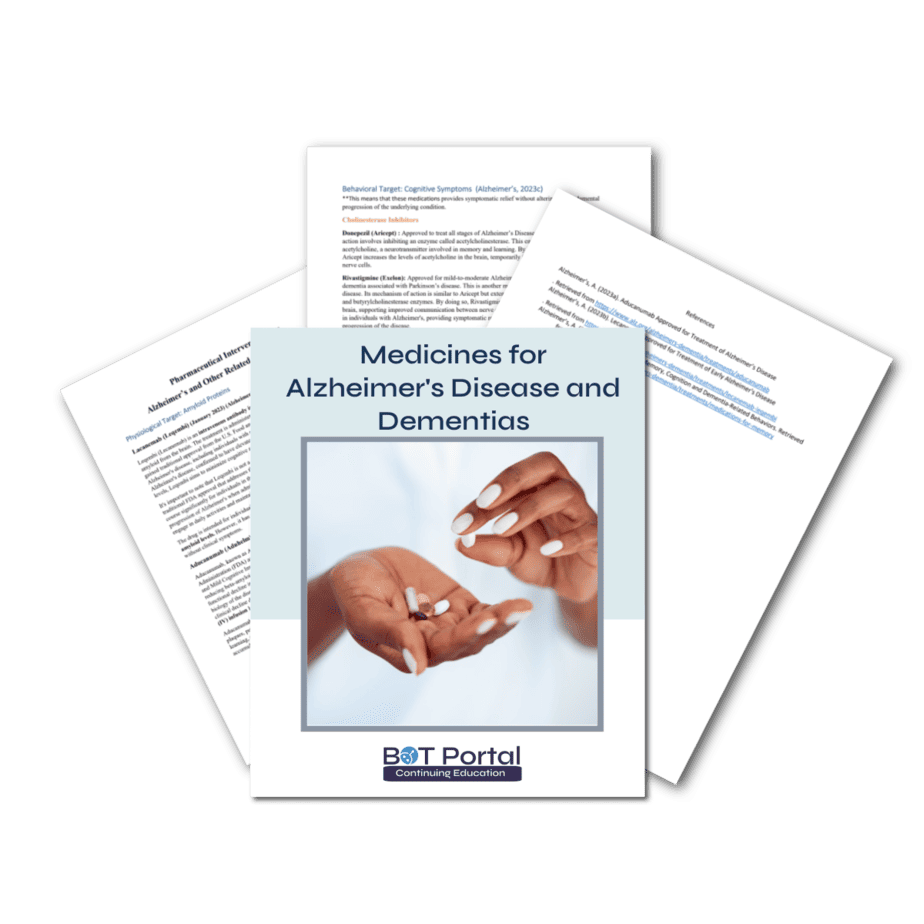Description
Medicines for Alzheimer’s Disease and Dementia
Medicines for Alzheimer’s Disease and other related dementias are very important for managing the condition and its many symptoms. They help relieve symptoms, slow down the disease, and improve the quality of life for those affected. This guide explains the medications commonly used to treat Alzheimer’s and dementia, how they work, their benefits, and possible side effects.
Cholinesterase Inhibitors:
These drugs help improve memory and thinking by increasing a brain chemical called acetylcholine. Donepezil, rivastigmine, and galantamine are common cholinesterase inhibitors used for mild to moderate Alzheimer’s. They can help with memory, behavior, and daily activities.
NMDA Receptor Antagonists:
Memantine is a medication that helps control another brain chemical called glutamate, which is important for learning and memory. Memantine is used for moderate to severe Alzheimer’s and can be combined with cholinesterase inhibitors. It helps slow down symptoms and improves thinking and behavior in people with advanced dementia.
Antipsychotic Medications:
These medications help manage symptoms like agitation, aggression, and hallucinations. They need to be used carefully because they can have serious side effects, like sedation and increased risk of stroke. Atypical antipsychotics, such as risperidone, quetiapine, and olanzapine, are often preferred because they have fewer side effects.
Antidepressant Medications:
Depression and anxiety are common in people with Alzheimer’s. Antidepressants like sertraline and citalopram are often used because they are effective and have fewer side effects. These medications help manage mood and improve quality of life.
Considerations for Medication Use:
Doctors must consider many factors when prescribing medications for Alzheimer’s, such as the stage of the disease, other health conditions, and how well the patient can tolerate the medication. Regular check-ups are important to ensure the medications are working and not causing bad side effects. Non-drug treatments like mental exercises, physical activity, and social interaction should also be included in the treatment plan to help improve overall well-being.
What’s included?
3 page reference sheet for Alzheimer’s and Mild Cognitive Impairment Medications
Other helpful links:
Check out BOT Portal: Resource Site for Occupational Therapy Students and Practitioners




